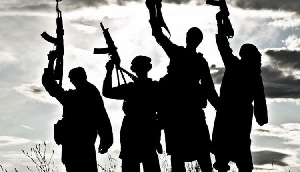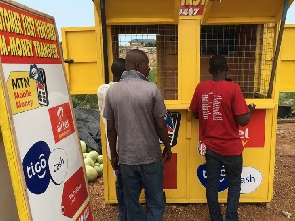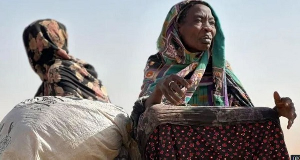Anxieties over a possible terrorist attack on Ghana have heightened now than ever, as security analysts have tipped the country to suffer the threat if urgent steps are not taken to tighten security.
At a forum, which reflected on counter-terrorism on the West African sub-region, yesterday, security analysts indicated that terrorism signals in recent times pointed at Ghana, requiring the state to increase investment in counter terrorism.
Organised by the Kofi Annan International Peacekeeping Training Centre (KAIPTC), the meeting brought together the top hierarchy of the country’s security agencies, security experts in the sub-region, and academia among others, to discuss the tendency of “West Africa Becoming the New Arc of Instability in the Region.”
Contributing to a panel discussion, Commanding Officer of the Countering Terrorism Department of the Ghana Police Service (GPS), Chief Superintendent Adofiem Raymond Wejong, called for the immediate resourcing of Ghana’s security agencies with necessary logistics, to curb terrorism.
He held that there was a rapid escalation of terrorism on the sub-region, and Ghana could not be let off the hook, stressing that “we don’t need to wait anymore neither do we need new policies. We have to act as abruptly as possible and train the security on counterterrorism.”
Chief Supt. Wejong commended ongoing arrangements to control the import and usage of drones in the country, but said that “the most important thing we need to check is who brings them in and control it from the onset.”
Mr Mutaru Mumuni, Executive Director for the West African Center for Counter-Extremism (WACCE), noted that the youth were the main focus of terrorist attacks in the sub-region, urging governments to pay attention to their needs.
“We have to understand our youth to be able to curb terrorism in Ghana. Boko Haram lured many susceptible and ignorant youth into their fold under the pretext of a reasonable job offer and we must work earnestly to ensure young people are protected especially in the cyber space,” he cautioned.
Research Fellow, Faculty of Academic Affairs and Research at KAIPTC, Dr Festus Aubyn, noted that terrorist groups dwelt on “local grievances to perpetuate their attacks and also use the socio-economical condition of a country to influence the mindset of the locals.”
“The borders of Mali, Chad and Burkina Faso since 2017 have been under attack and it’s spreading down to Ghana. There have been reports that terrorist groups want to take access of 70 per cent of Burkina Faso and there have been alliances and emergence of terrorists groups to get access to the coastal areas so we need to act quickly,” he warned.
To Dr Kwesi Aning, Director of the Faculty of Academic Affairs and Research at KAIPTC, said there was no doubt terrorism was becoming a challenge “in our daily lives” charging the security agencies to execute their work with a high sense of professionalism to ensure the safety of Ghanaians.
General News of Saturday, 6 July 2019
Source: ghanaiantimes.com.gh













